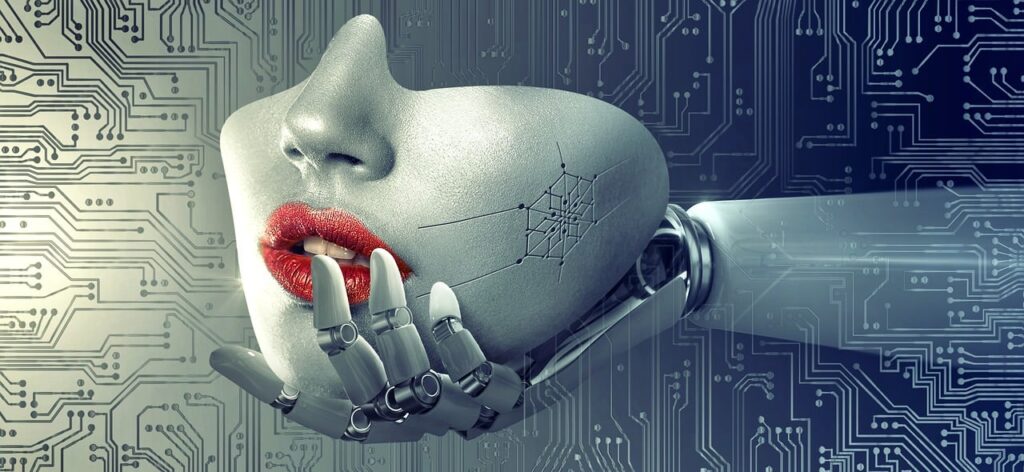In the digital age, where information is power and cyber threats loom large, the field of ethical hacking has become more critical than ever. With the rise of Artificial Intelligence (AI), ethical hackers and cybersecurity experts have a new and potent ally in their ongoing battle against malicious actors. This article explores the role of AI in ethical hacking and defense, shedding light on how this technology is reshaping the cybersecurity landscape.

Understanding Ethical Hacking:
Ethical hacking, also known as penetration testing or white-hat hacking, involves authorized experts probing computer systems and networks to identify vulnerabilities and weaknesses. These professionals work diligently to protect organizations and individuals from cyberattacks. In the ever-evolving realm of cybersecurity, ethical hackers are the first line of defense against cybercriminals.
The AI Revolution:
Artificial Intelligence has made tremendous strides in recent years. It has been employed across numerous domains, and its applications in cybersecurity are particularly noteworthy. AI systems are designed to mimic human intelligence and perform tasks that would require human intervention. When it comes to ethical hacking and defense, AI plays a multifaceted role.
Automated Threat Detection:
One of the most significant contributions of AI in cybersecurity is automated threat detection. Traditional cybersecurity systems relied heavily on predefined rules and signatures to identify and mitigate threats. These systems often struggled to keep up with the rapidly evolving tactics of cybercriminals. AI, however, uses machine learning algorithms to detect anomalies in network behavior. It can identify potential threats even before they become critical issues. This proactive approach is a game-changer in cybersecurity.
Behavioral Analysis:
AI’s ability to analyze behavioral patterns is invaluable. It can learn what normal behavior looks like on a network and promptly flag any deviations from the norm. This enables early detection of insider threats, where malicious actors within an organization attempt to exploit vulnerabilities. AI systems can uncover these threats based on unusual patterns of access and activity.
Streamlining Security Operations:
AI can significantly reduce the workload of cybersecurity professionals. It can automate routine tasks, such as patch management and system updates. This frees up experts to focus on more complex and strategic aspects of cybersecurity. Additionally, AI can assist in security incident response by providing real-time data and analysis, helping security teams make quick and informed decisions.
Threat Prediction:
AI’s predictive capabilities are a crucial component of ethical hacking and defense. By analyzing historical data and current trends, AI can predict potential threats and vulnerabilities that an organization may face in the future. This foresight enables organizations to take proactive measures, bolstering their defense against emerging threats.
Vulnerability Scanning:
Vulnerability assessment is a fundamental aspect of ethical hacking. AI-powered vulnerability scanners can scan entire networks and systems for weaknesses, pinpointing areas that require attention. This process is faster and more accurate than manual assessments, helping organizations maintain a robust security posture.
Reducing False Positives:
False positives can overwhelm security teams and divert their attention from real threats. AI’s machine learning algorithms continuously refine their ability to distinguish between benign anomalies and genuine security risks. This helps reduce the number of false alarms, enabling security teams to focus on genuine issues.
Challenges and Ethical Considerations:
While the role of AI in ethical hacking and defense is undeniably transformative, it is not without its challenges and ethical considerations. AI systems can be vulnerable to adversarial attacks where hackers exploit the system’s own algorithms. Additionally, the vast amounts of data AI systems require can raise concerns about privacy and data security.
The Future of Ethical Hacking:
AI’s role in ethical hacking and defense is likely to expand further in the coming years. As AI systems become more sophisticated and adaptable, they will continue to provide critical support to cybersecurity efforts. Ethical hackers will need to stay abreast of these developments to effectively combat emerging threats.
Conclusion:
The integration of AI into ethical hacking and defense is reshaping the cybersecurity landscape. With its ability to automate threat detection, analyze behavioral patterns, and predict vulnerabilities, AI is an invaluable tool for ethical hackers and cybersecurity professionals. However, challenges and ethical considerations must be addressed as AI’s role in this field continues to grow. As technology evolves, ethical hacking, and defense will rely on AI to stay one step ahead of cybercriminals and protect our digital world.